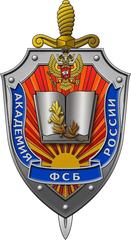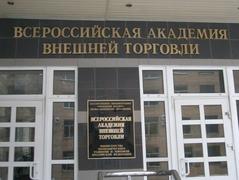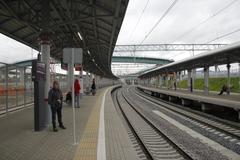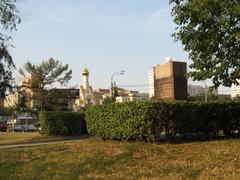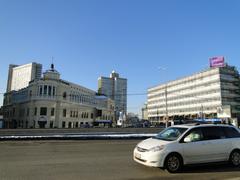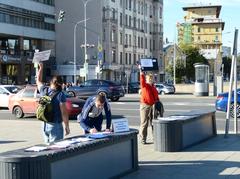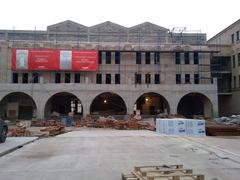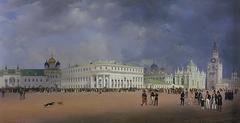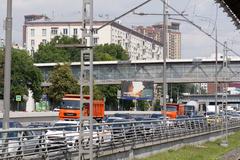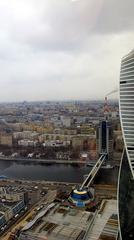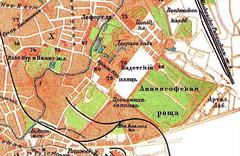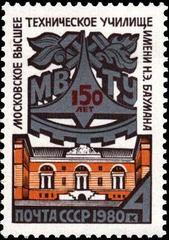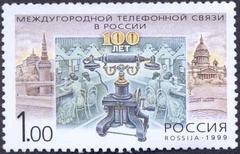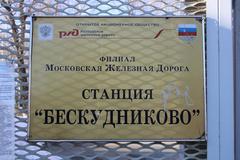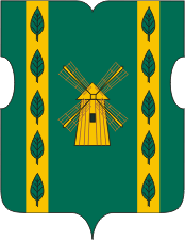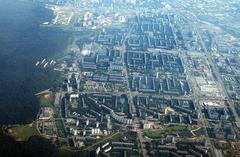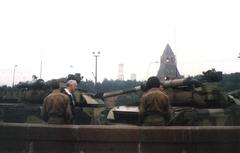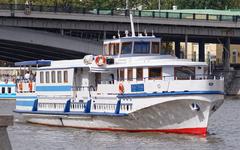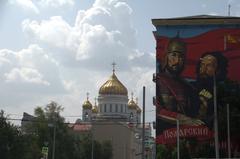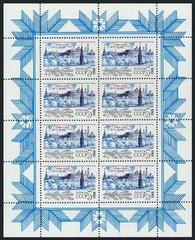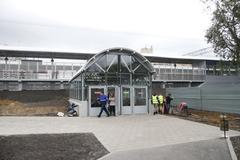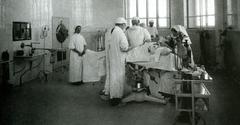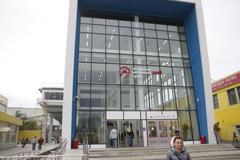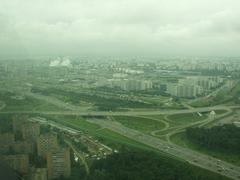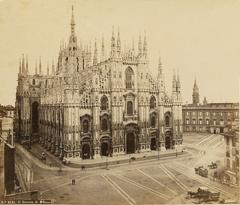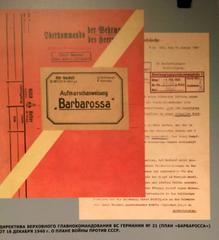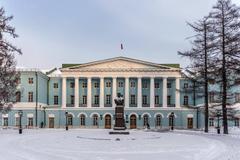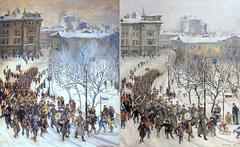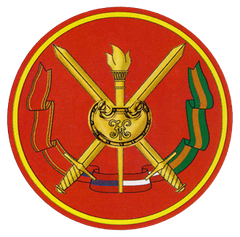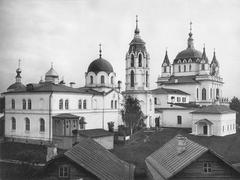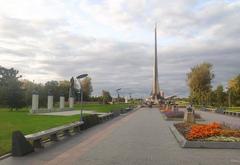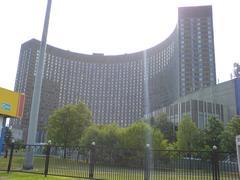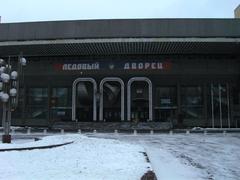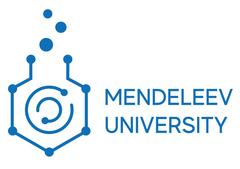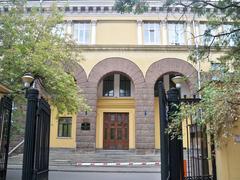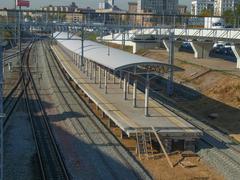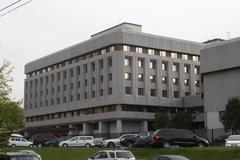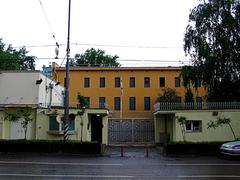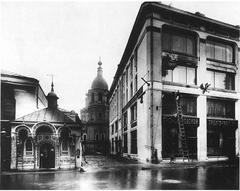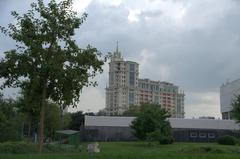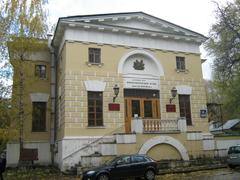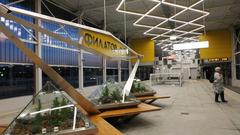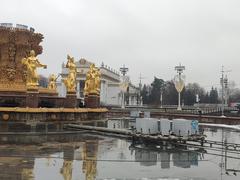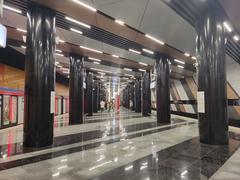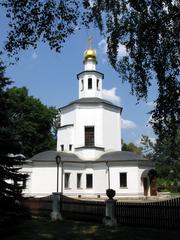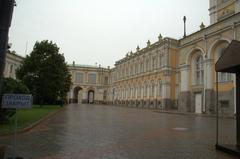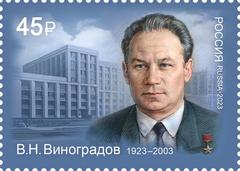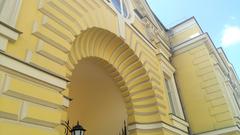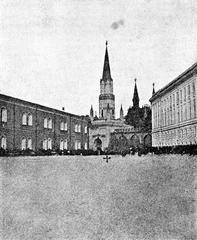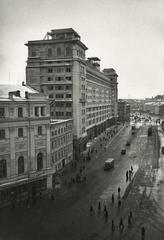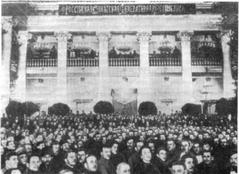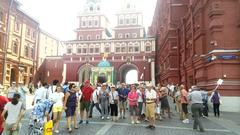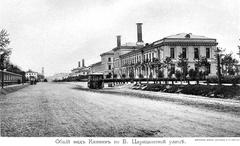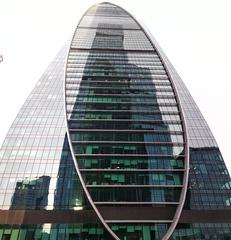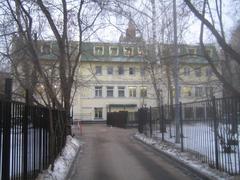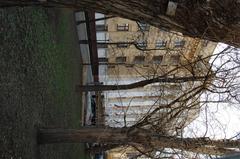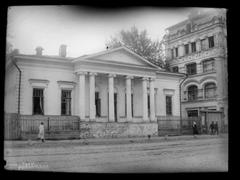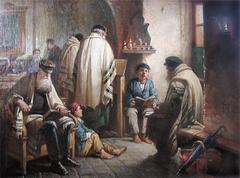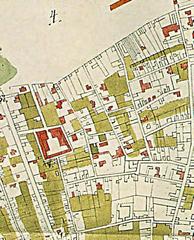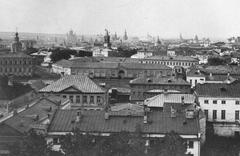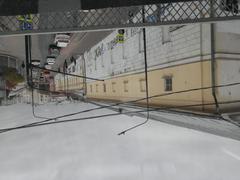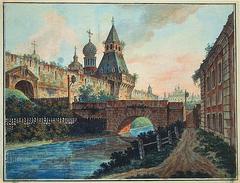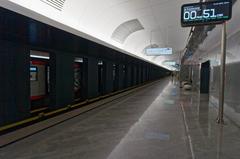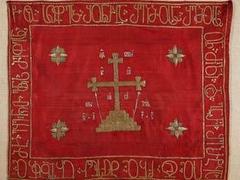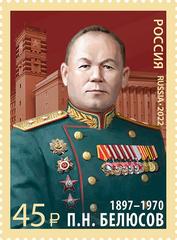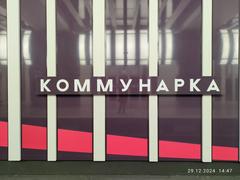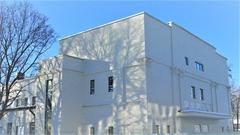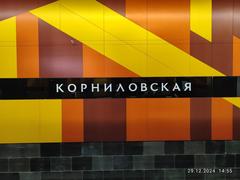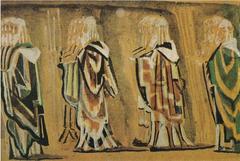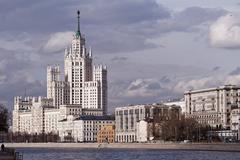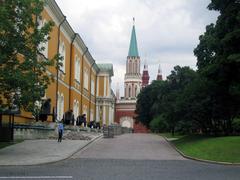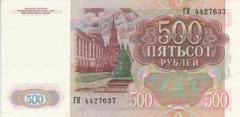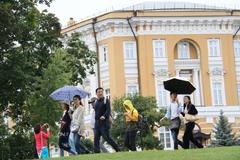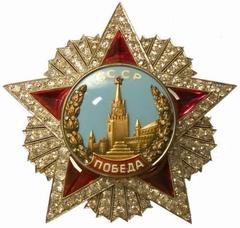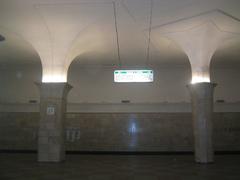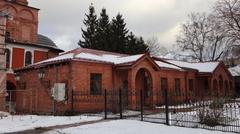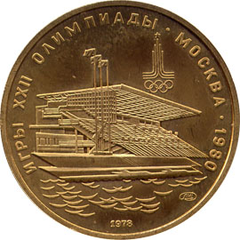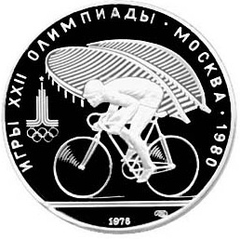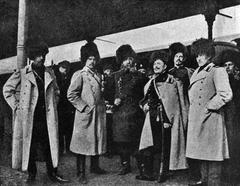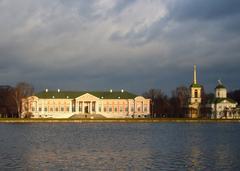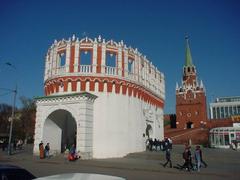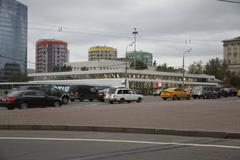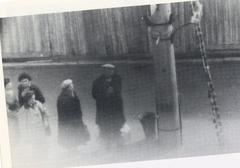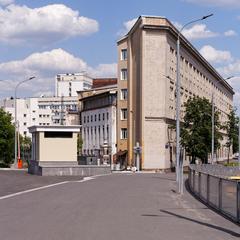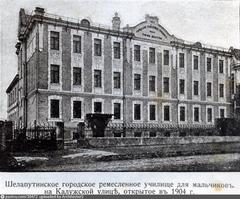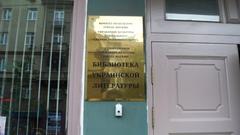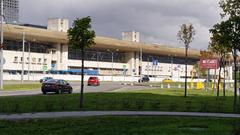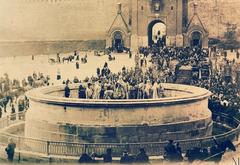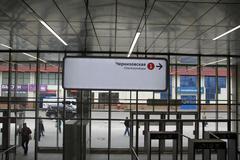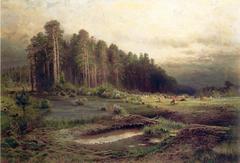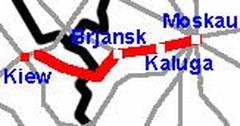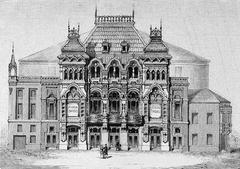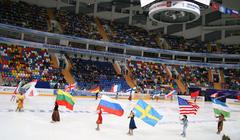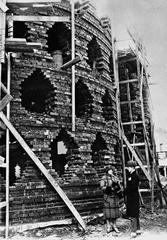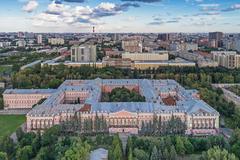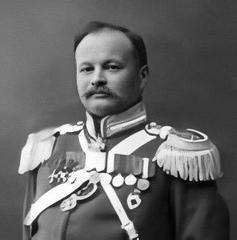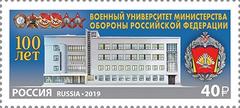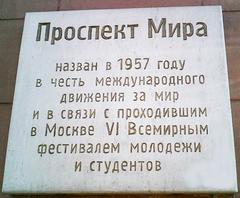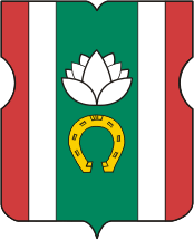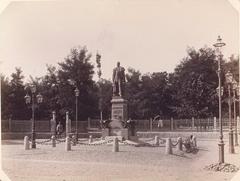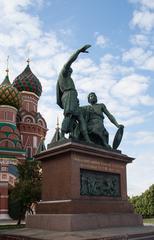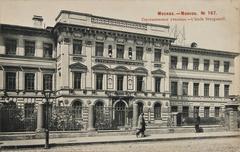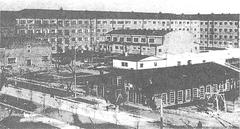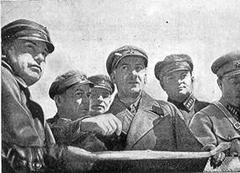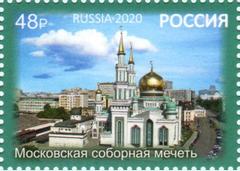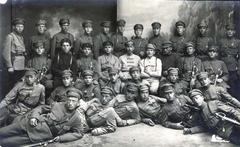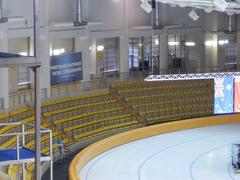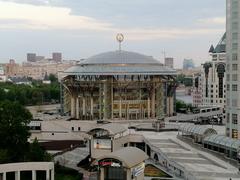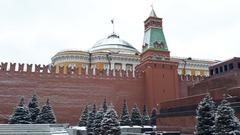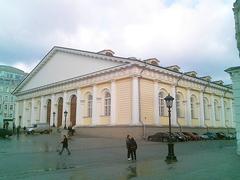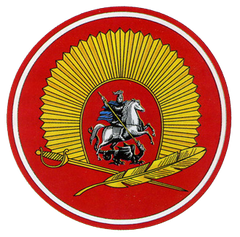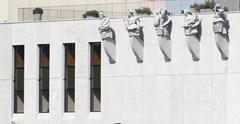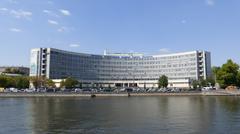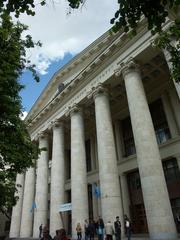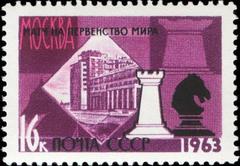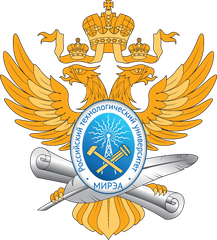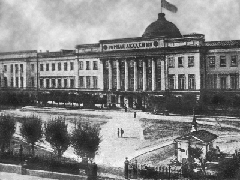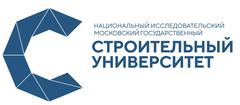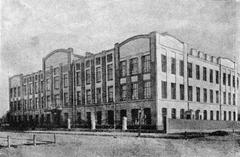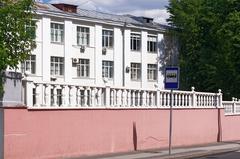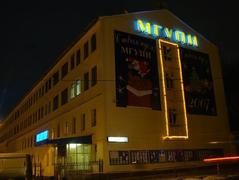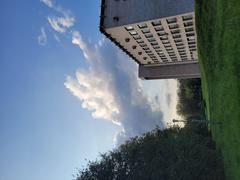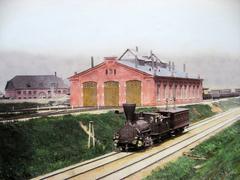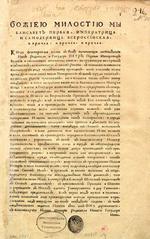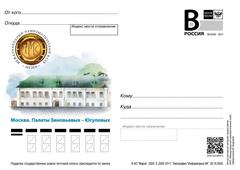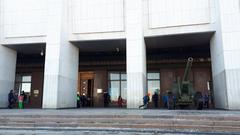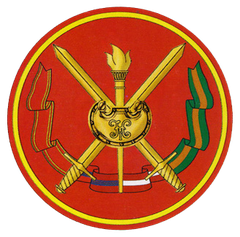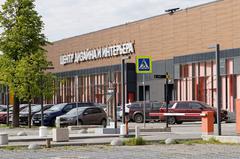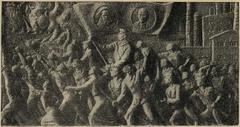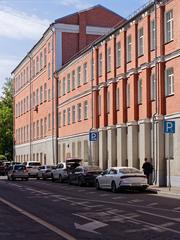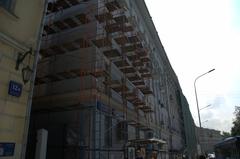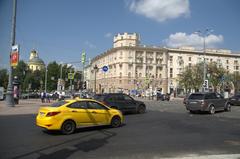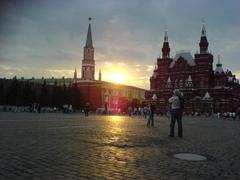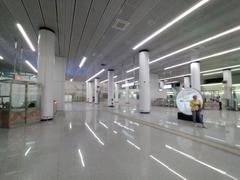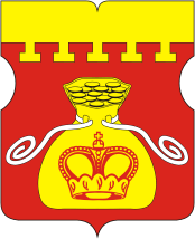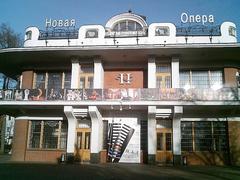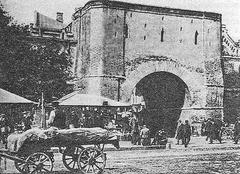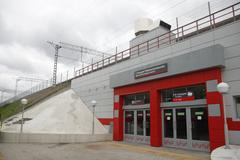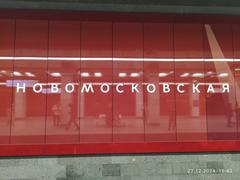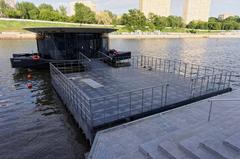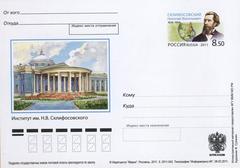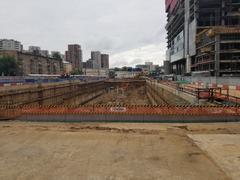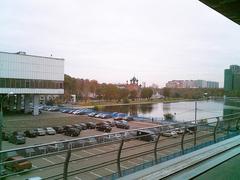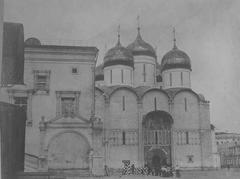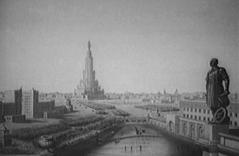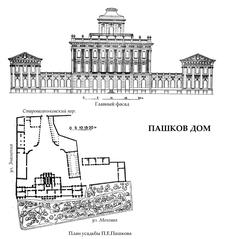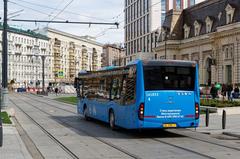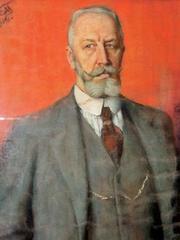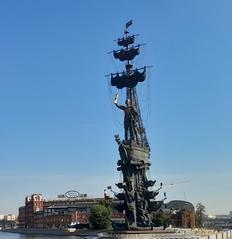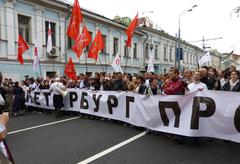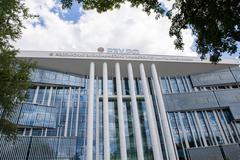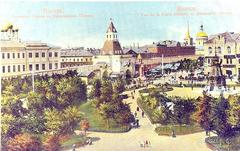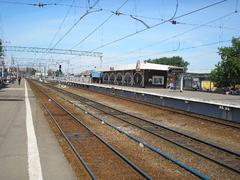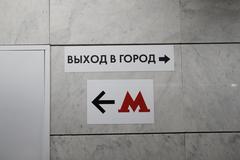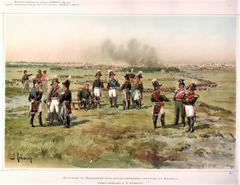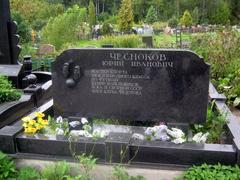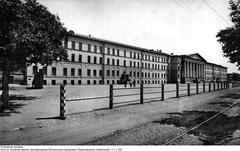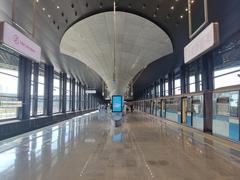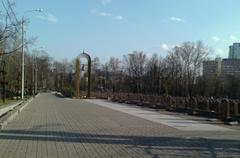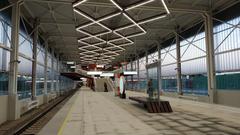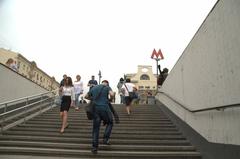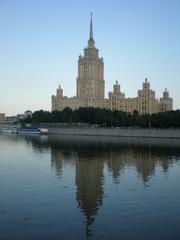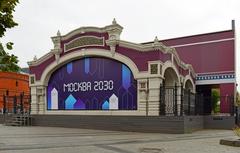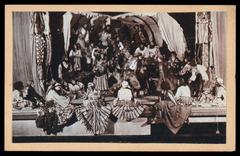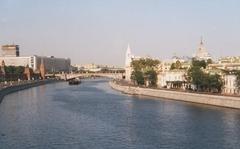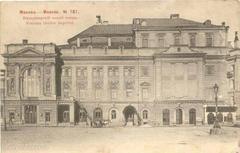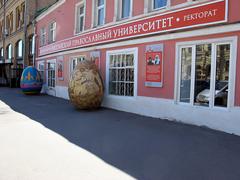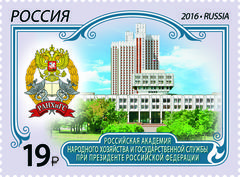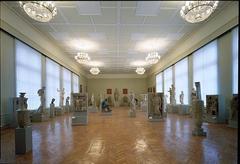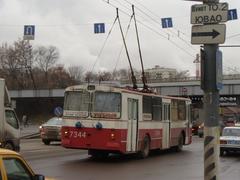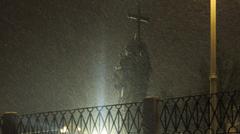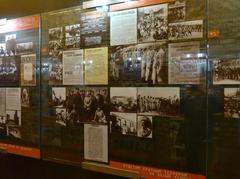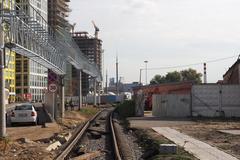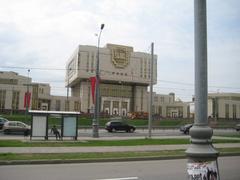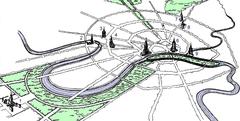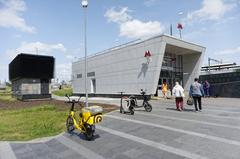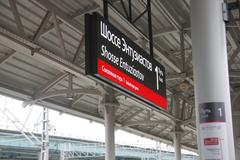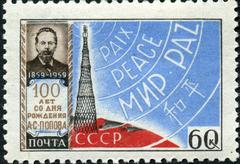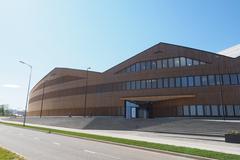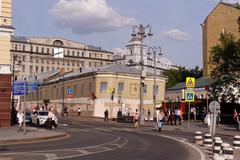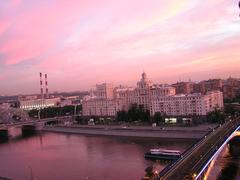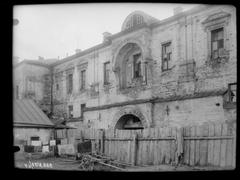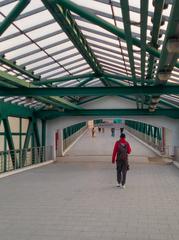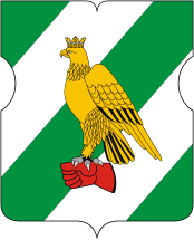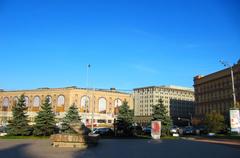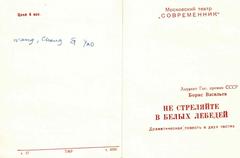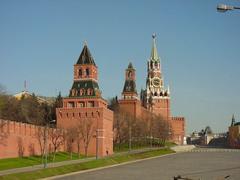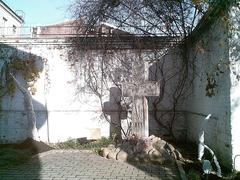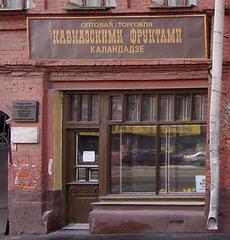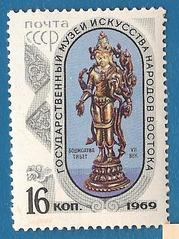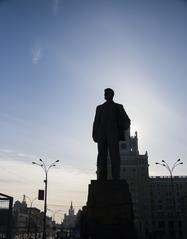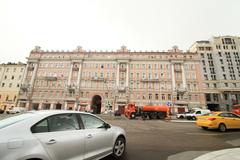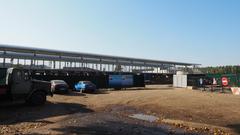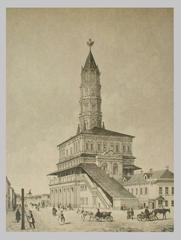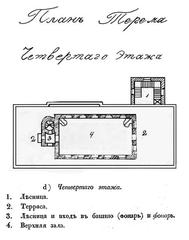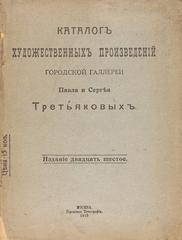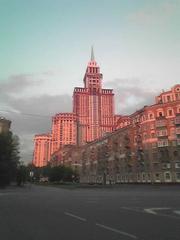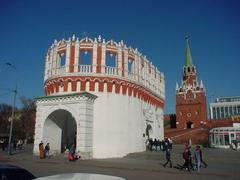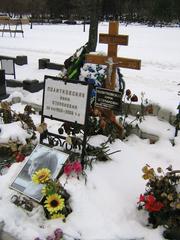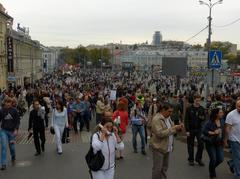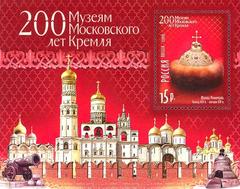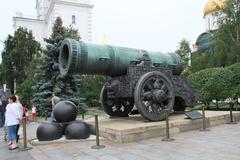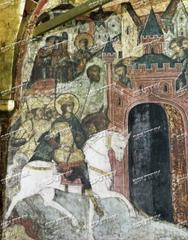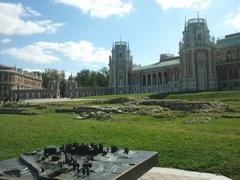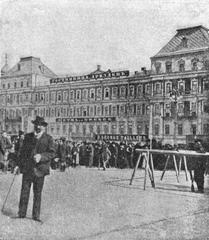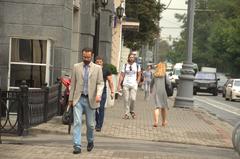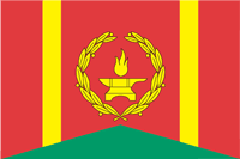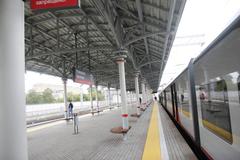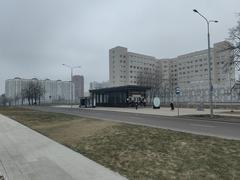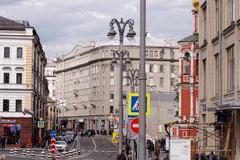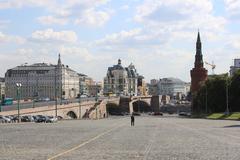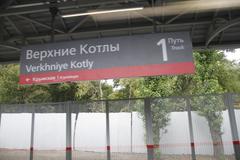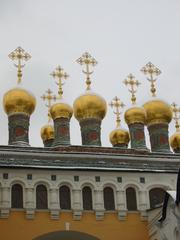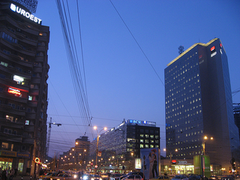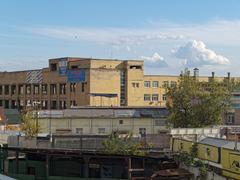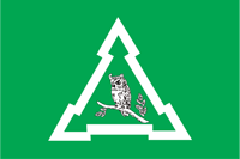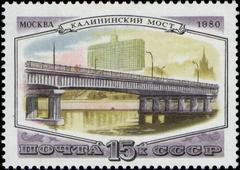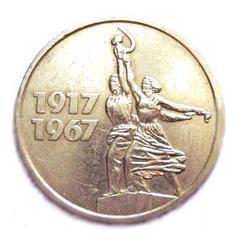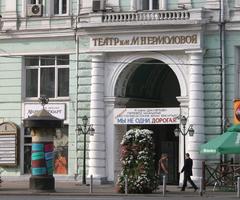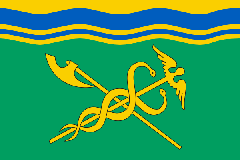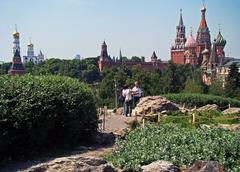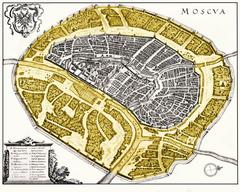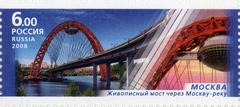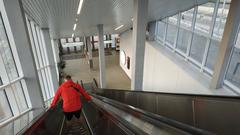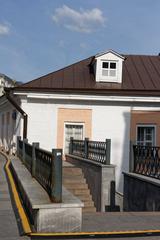
Russian State Archive of Economy (RGAE) in Moscow: Visiting Hours, Access, and Research Guide
Date: 03/07/2025
Introduction
The Russian State Archive of Economy (RGAE), located in central Moscow, is a premier repository for Russia’s economic, financial, and statistical records, spanning from the late Imperial era through the Soviet period and into contemporary Russia. Established in 1992 as the successor to the Central State Archive of the National Economy of the USSR, RGAE houses over seven million archival units, including pivotal planning documents, ministry files, statistical data, and personal papers of key Soviet economists. Whether you are a seasoned researcher, a student, or a history enthusiast, RGAE offers unparalleled opportunities to engage with the documentary legacy that shaped Russia’s economic trajectory.
This guide provides comprehensive information on RGAE’s collections, visiting hours, entry procedures, researcher support, and practical tips—ensuring a productive and enriching experience for all visitors.
Official RGAE website
Access to Russian Archives database
Table of Contents
- Origins and Establishment of RGAE
- Scope and Significance of the Archive
- Key Collections and Landmark Holdings
- RGAE in the Russian and Global Archival Landscape
- Visiting RGAE: Hours, Access, and Facilities
- Research Resources and On-Site Services
- Challenges for Foreign Researchers
- Frequently Asked Questions
- Practical Tips for a Successful Visit
- Conclusion
- References and Further Reading
Origins and Establishment of RGAE
RGAE was established in 1992, inheriting the collections of the Central State Archive of the National Economy of the USSR (TsGANKh SSSR), which dated back to 1961. This transition reflected Russia’s shift from centralized economic planning to a market-oriented system. Today, RGAE preserves the documentary heritage generated by Soviet ministries, planning bodies such as Gosplan and Gossnab, and major industrial enterprises—offering critical insight into the mechanisms and transformations of the Soviet and Russian economies.
Scope and Significance of the Archive
RGAE holds over seven million archival units, covering:
- Central planning documents: Five-Year Plans, annual reports, directives from Gosplan, Gossnab, and other agencies.
- Ministry and enterprise records: Files from Soviet ministries (Finance, Foreign Trade, Agriculture, etc.), major industrial enterprises, and collective farms.
- Statistical data: Economic surveys, censuses, production and labor reports from the Central Statistical Administration (TsSU).
- Personal papers: Archives of prominent economists and policymakers such as Nikolai Voznesensky and Alexei Kosygin.
- International economic relations: Agreements and documentation of trade and cooperation with both socialist and non-socialist countries.
The archive’s holdings are essential for understanding industrialization, collectivization, economic reforms, crises, and the transition to a market economy. RGAE also plays a crucial role in preserving economic memory and promoting transparency, with increasing digitization and online access to finding aids and selected materials.
Key Collections and Landmark Holdings
- Gosplan Archives: Comprehensive records of Soviet economic planning, including all Five-Year Plans and internal memoranda.
- Gossnab Documents: Materials on resource allocation and supply chain management.
- Ministry of Finance and State Bank: Budgeting, monetary policy, and fiscal records.
- Sectoral Ministries: Documentation from ministries of Heavy Industry, Light Industry, and Agriculture.
- Enterprise and Trusts: Reports and technical documentation from major Soviet enterprises.
- Pre-Soviet and Post-Soviet Materials: Archival records from late Imperial ministries and documents on the post-1991 economic transition.
- Statistical Yearbooks and Census Data: Extensive quantitative resources for economic and demographic research.
RGAE in the Russian and Global Archival Landscape
As a part of the Federal Archival Agency of Russia (Rosarkhiv), RGAE collaborates with other major Russian archives such as RGANI and GARF. Internationally, it is recognized as a leading institution for economic history research, hosting and participating in scholarly conferences and joint projects.
Visiting RGAE: Hours, Access, and Facilities
Location and Directions
- Address: 17 Bolshaya Pirogovskaya Street, Moscow, Russia
- Nearest Metro: Frunzenskaya. After exiting, turn left and follow the road to the end; the archive is the last building on the left.
(UCL CEELBAS)
Visiting Hours
- Monday & Wednesday: 12:00–20:00
- Tuesday & Thursday: 10:00–17:00
- Friday: 10:00–16:00
- Closed: Weekends, August (full month), and first working day of each month (sanitary day). Schedules may change around public holidays.
(UCL CEELBAS)
Entry Procedures and Registration
- For all visitors: Register in advance, bring a valid passport and a letter of introduction (addressed to the director).
- On arrival: Obtain a temporary pass at the propusk desk, leave coats/bags in the cloakroom, and present your documents at the main reading room desk.
- For foreign researchers: You must submit an institutional letter of introduction, translated into Russian, and may need additional permissions. Your passport is required at each visit.
Fees and Services
- Entry: Free with registration.
- Fees: Charged for photocopies, digital scans, and some special services.
- Facilities: Reading rooms, microfilm readers, limited power outlets (charging only at the front desk), cloakroom, and a canteen. No in-room Wi-Fi; mobile coverage may be limited.
Accessibility
- The building is accessible to visitors with limited mobility, but advance arrangements are recommended.
Photographic and Media Policy
- Photography is generally not permitted without explicit permission. Always check with archive staff and secure approval before photographing materials.
Guided Tours and Special Events
- Public guided tours are rare; the archive is primarily focused on research access. Occasionally, exhibitions or workshops are organized—check the official website for announcements.
Research Resources and On-Site Services
Catalogues and Finding Aids
- In Reading Rooms: Computer and paper catalogues, with detailed inventories available in Russian and (sometimes) English.
- Online: The RGAE electronic catalogue offers digitized finding aids for remote research preparation.
Digital Collections
- Selected archival materials, including planning documents and statistical yearbooks, are digitized and accessible through the RGAE digital portal.
Research Support
- Archive staff provide guidance on navigating collections and Soviet terminology. Translation assistance is limited; non-Russian speakers are encouraged to arrange external support.
Challenges for Foreign Researchers
Foreign visitors face additional challenges when accessing RGAE:
- Special Permissions: Foreigners must obtain prior approval, including an institutional letter of introduction and, often, coordination with Russian authorities (geohistory.today).
- Visa and Registration: A research visa and local registration are mandatory; a tourist tax applies to all foreign visitors (penguintravel.com).
- Language Barriers: All materials and staff communication are in Russian (geohistory.today).
- Security Protocols: Strict identification, bag checks, and sometimes surveillance.
- Limited Amenities: No Wi-Fi, limited food options, and basic restroom facilities (warwick.ac.uk).
- Remote Research: Commissioning local experts for document retrieval is possible, but not always a substitute for in-person access (eastview.com).
Frequently Asked Questions
Q: What are RGAE’s visiting hours?
A: Monday & Wednesday 12:00–20:00; Tuesday & Thursday 10:00–17:00; Friday 10:00–16:00. Closed weekends, August, and first working day each month.
Q: Is there an entrance fee?
A: Entry is free, but registration is required. Fees apply for reproduction services.
Q: What documentation do I need?
A: Valid passport, letter of introduction (in Russian), and official permissions for foreign researchers.
Q: Can I photograph documents?
A: Only with prior permission; fees and restrictions apply.
Q: Is the online catalogue available in English?
A: It is primarily in Russian, with some resources searchable via English transliteration.
Q: What are the archive’s accessibility features?
A: The building is accessible; contact staff in advance for assistance.
Q: How do I order documents?
A: Use the online or in-room catalogue; as of 2025, some paper files may only be available via microfilm.
Practical Tips for a Successful Visit
- Register and secure permissions well in advance, especially if you are a foreign researcher.
- Study the online catalogue prior to arrival.
- Prepare for language barriers; bring a translator or Russian-speaking assistant if needed.
- Arrive early to secure a seat, particularly in smaller reading rooms.
- Carry your passport, propusk, and all documentation at all times.
- Bring essential items: personal toiletries, a thermos for drinks, and a universal plug adapter.
- Nearby, the stolovaia (canteen) offers affordable meals; external cafes are also an option.
- Plan to visit nearby historical sites such as Gorky Park and the Moscow River embankment to enrich your trip.
Conclusion
The Russian State Archive of Economy (RGAE) is a vital institution for anyone seeking to understand Russia’s economic history. Its vast collections, rigorous access procedures, and increasing digital resources make it an indispensable destination for researchers and enthusiasts alike. By preparing thoroughly—securing the proper documentation, familiarizing yourself with the archive’s resources, and planning for local conditions—you can ensure a rewarding and productive visit.
Stay informed by consulting the official RGAE website, and consider using the Access to Russian Archives database for remote research support. For additional travel guidance, see The Invisible Tourist’s Russia Travel Tips and The Broke Backpacker’s Moscow Itinerary. Download the Audiala app for up-to-date information and research tools.
References and Further Reading
- RGAE Official Website
- Federal Archival Agency of Russia (Rosarkhiv)
- UCL CEELBAS: State Archive of the Russian Federation
- Access to Russian Archives database
- The Invisible Tourist’s Russia Travel Tips
- The Broke Backpacker’s Moscow Itinerary
- Travel Guide to Russia 2025 (Penguin Travel)
- Remote Archive Services (EastView)
- Moscow Archive Guide (Warwick University)
Images for inclusion:
- Exterior of the Russian State Archive of Economy building – Alt text: “Russian State Archive of Economy (RGAE) building in Moscow”
- Reading room interior – Alt text: “RGAE reading room with archival materials and researchers”
- Sample archival document from Gosplan – Alt text: “Archival document from Gosplan collection at RGAE”
For virtual tours and interactive maps, refer to the RGAE website for the latest updates.


